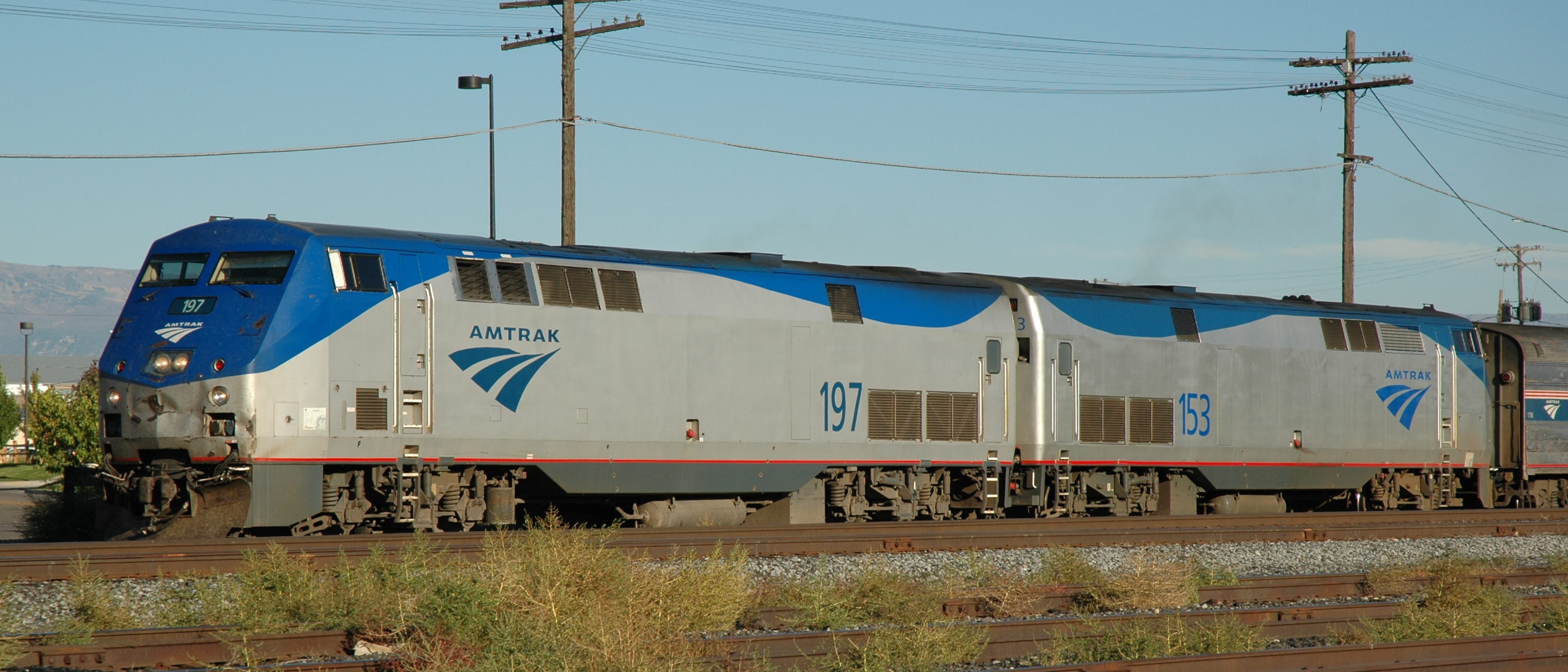Business
Billions In US Trade Put At Risk After Thousands Of Workers Locked Out In Union Dispute

Amtrak train on the tracks.
Billions of dollars worth of U.S. trade was put in danger due to a Canadian railroad lockout of more than 9,000 employees Thursday after the parties failed to reach new labor agreements, according to The Wall Street Journal.
Canadian National Railway and Canadian Pacific Kansas City locked out the employees after reaching an impasse in negotiations with the Teamsters Canada Rail Conference, with the two parties failing to come to deals by the 12:01 a.m. Eastern time deadline, the WSJ reported. The decision disrupted much of the hundreds of millions of dollars in trade that occurs daily along the U.S.-Canada border and could have thrust American supply chains into disarray.
“The economic repercussions of a rail work stoppage of this magnitude would be devastating locally, and given the interconnectivity, consequently impact the movement of goods in the United States and beyond,” the U.S. Agriculture Department wrote in an August 15 on the implications of a Canadian railway work stoppage.
However, the Canada Industrial Relations Board told Canadian National Thursday evening that it planned to issue a formal order for the company to enter forced arbitration with the Teamsters, a Canadian National spokeswoman told the Daily Caller News Foundation. The company then ended its lockout at 6 p.m. in preparation.
“[Canadian National (CN)] announced today that effective 18:00 ET, it ended its lockout and immediately initiated its recovery plan,” the spokeswoman told the DCNF. “As CN awaits the formal order from the Canada Industrial Relations Board (CIRB), the Company is making this decision to expedite the recovery of the economy. While CN is satisfied that this labour conflict has ended and that it can get back to its role of powering the economy, the Company is disappointed that a negotiated deal could not be achieved at the bargaining table despite its best efforts.”
The lockout could have cost over $251 million per day and crushed Canadian exports of grain, coal and petroleum while simultaneously crippling U.S. agricultural exports to the country, according to Reuters. Canada purchased $28.3 billion worth of U.S. agricultural products in 2023.
It also could have resulted in risks to American’s water supply as Canada provides roughly 60% of the chlorine used in water-treatment plants in the western U.S., the WSJ reported.
“If this isn’t addressed and the chlorine [from Canada] cannot flow again, you are talking about boil-water advisories to protect public health,” Bob Masterson, president of the Chemistry Industry Association of Canada, told the WSJ.
Canadian Pacific Kansas City and Canadian National each operate around 20,000 miles of track, with lines running from Canada’s east and west coasts all the way down to the U.S. South. Canadian National alone ships roughly 300 million metric tons of cargo each year.
Despite the enormous costs, the Canadian government was initially unwilling to involve itself in the negotiations, with Canada’s labor relations board ruling a shutdown in rail operations did not have public health implications and thus did not qualify for federal intervention, the WSJ reported.
“I would like to clarify that it is your shared responsibility, Canadian National Railways Co. and the Teamsters Canada Rail Conference, to negotiate in good faith and work diligently towards a new collective agreement,” Canada’s Federal Labor Minister Steven MacKinnon wrote in an August 15 note obtained by the WSJ.
The Teamsters Canada Rail Conference claimed the dispute centered around the “fatigue provisions” in the collective bargaining agreement, with union representatives asserting the companies wanted to force crews to work longer hours, reducing safety, according to the Canadian Broadcasting channel (CBC News). Canadian Pacific Kansas City denied this, claiming that its offer “fully complie[d] with new regulatory requirements.”
As of August 18, Canadian National asserted it had offered its workers contracts four different sets of wage, rest and labor availability provisions, all of which have been rejected, CBC News reported Sunday.
The Teamsters Canada Rail Conference and Canadian Pacific Kansas City all did not immediately respond to requests for comment.
All content created by the Daily Caller News Foundation, an independent and nonpartisan newswire service, is available without charge to any legitimate news publisher that can provide a large audience. All republished articles must include our logo, our reporter’s byline and their DCNF affiliation. For any questions about our guidelines or partnering with us, please contact [email protected].

